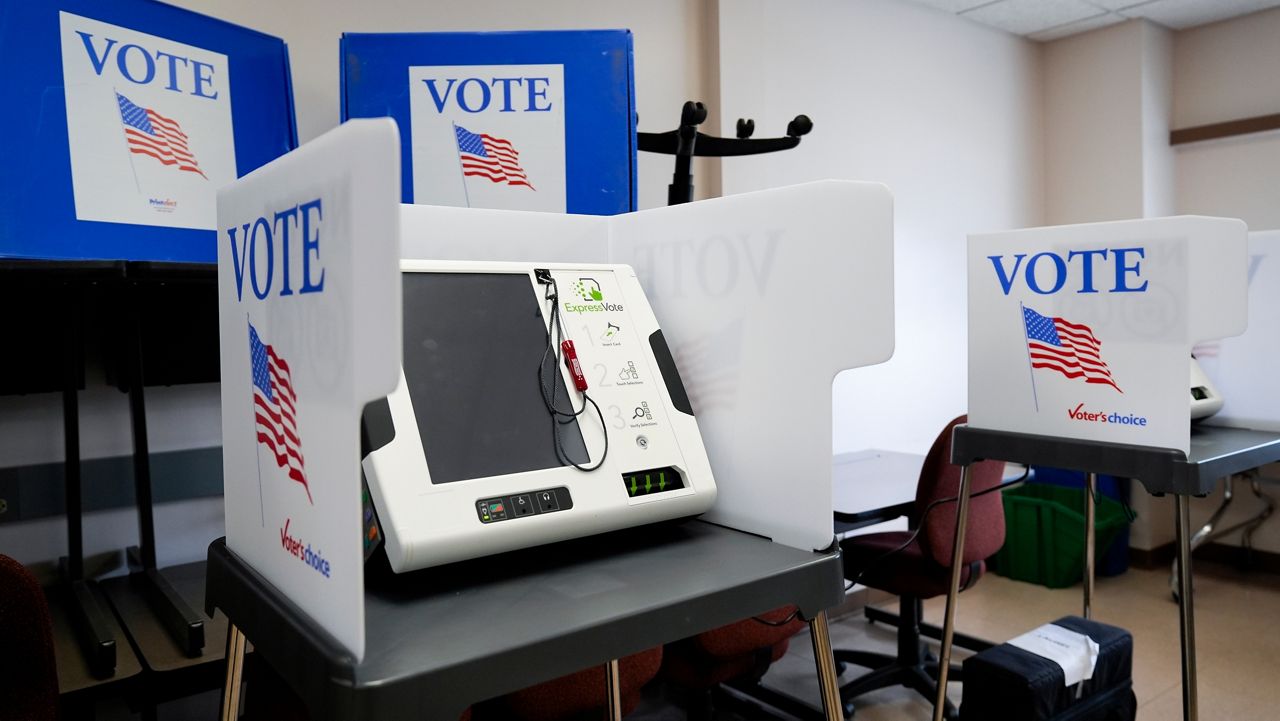RALEIGH, N.C. (AP) — The very close election for a North Carolina Supreme Court seat heads next to a hand recount even as election officials announced a machine recount of over 5.5 million ballots resulted in no margin change between the candidates.
The statewide machine recount — in which ballots were run again through tabulators — that wrapped up this week showed Democratic Associate Justice Allison Riggs with a 734-vote lead over Republican challenger Jefferson Griffin, who is a Court of Appeals judge.
Most county election boards reported minor vote changes from the machine recount requested by Griffin. But State Board of Elections data showed the post-recount lead exactly the same as what Riggs held after all 100 counties fully completed their ballot canvass in November. Griffin led Riggs by about 10,000 votes on election night, but that lead dwindled and flipped to Riggs as tens of thousands of qualifying provisional and absentee ballots were added to the totals through the canvass.
Griffin, who already has pending election protests challenging the validity of more than 60,000 ballots counted statewide, has asked for a partial hand-to-eye recount, which county boards will start Wednesday or Thursday.
The partial hand recount applies to ballots in 3% of the voting sites in all 100 counties, chosen at random Tuesday by the state board. Once the partial recount is complete, a statewide hand recount would be ordered if the sample results differ enough from the machine recount that the result would be reversed if the difference were extrapolated to all ballots.
Riggs, who was appointed to the Supreme Court in 2023 and now seeks an eight-year term, again claimed victory Tuesday. In a campaign news release, spokesperson Embry Owen said Griffin "needs to immediately concede – losing candidates must respect the will of voters and not needlessly waste state resources." Riggs is one of two Democrats on the seven-member court.
Through attorneys, Griffin has challenged ballots that he says may not qualify for several reasons and cast doubt on the election result. Among them: voter registration records of some voters casting ballots lack driver's license or partial Social Security numbers, and overseas voters never living in North Carolina may run afoul of state residency requirements.
State and county boards are considering the protests. Griffin's attorneys on Monday asked the state board to accelerate the matters before it and make a final ruling early next week.
"Our priority remains ensuring that every legal vote is counted and that the public can trust the integrity of this election," state Republican Party spokesperson Matt Mercer said in a news release. Final rulings by the state board can be appealed to state court.
Joining Griffin in protests are three Republican legislative candidates who still trailed narrowly in their respective races after the machine recounts. The Supreme Court race and two of these three legislative races have not been called by The Associated Press.
The key pending legislative race is for a House seat covering Granville County and parts of Vance County. Republican Rep. Frank Sossamon trails Democratic challenger Bryan Cohn by 228 votes, down from 233 votes before the recount. Sossamon also asked for a partial hard recount in his race, which was to begin Tuesday.
Should Cohn win, Republicans will fall one seat short of the 72 needed in the 120-member House to retain its veto-proof majority — giving more leverage to Democratic Gov.-elect Josh Stein in 2025. Senate Republicans already have won 30 of the 50 seats needed to retain its supermajority in their chamber.
The AP on Tuesday did call another legislative race not subject to a protest, as Mecklenburg County GOP Rep. Tricia Cotham won her reelection bid over Democrat Nicole Sidman. A machine recount showed Cotham ahead of Sidman by 213 votes, compared to 216 after the county canvass. Cotham's switch from the Democrats to the Republicans in April 2023 secured the Republicans' 72-seat veto-proof majority so that Democratic Gov. Roy Cooper's vetoes could be overridden by relying solely on GOP lawmakers.



